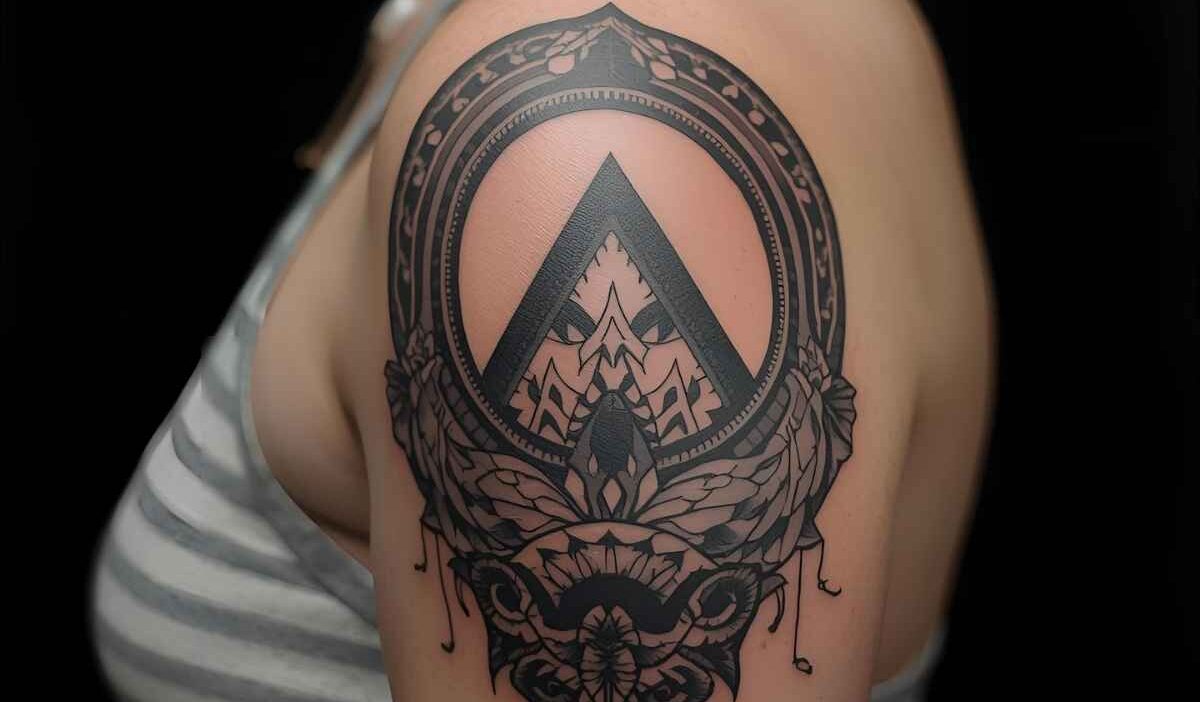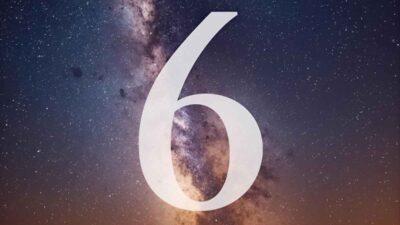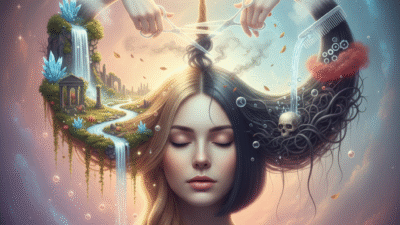When you dream about tattoos, it often reflects themes of identity, permanence, and self-expression. A “tattoo dream meaning” typically suggests that something important in your life is being marked, committed to, or transformed—sometimes positively, sometimes with hesitancy or conflict.
Tattoo dreams are deeply fascinating because tattoos are both personal and permanent symbols. In dreams, they become visual metaphors for how we see ourselves (or wish others to see us), what we want to leave behind, and what we feel is indelibly etched in our inner lives. In this article, we’ll explore the general symbolism of tattoo dreams, dive into many common variations (eating, making, sharing, birthday or wedding tattoo dreams), look at a real-life case, cover cultural and historical symbolism, and then offer psychological insights and growth tools. We’ll also answer FAQs and wrap up with actionable reflections.
General Meaning, Symbolism & Interpretations of Tattoo Dreams
When trying to understand the tattoo dream meaning, it helps to look first at what tattoos represent in waking life:
- Permanence & commitment: Tattoos are meant to stay with you, so in dreams they can point to major, lasting decisions or life themes.
- Identity & self-expression: They can reflect how you see yourself, or want others to see you.
- Marking or branding: A tattoo may evoke being “marked” by experiences—some you accept, some you wish to remove.
- Memory & legacy: Tattoos in dreams can symbolize the emotional traces of past events or relationships that still leave their imprint.
Psychological & Spiritual Angles
From a psychological perspective, tattoos in dreams often tap into unconscious processes. The work of Calvin Hall (a cognitive dream theorist) argues that dreams express “conceptions” of self, others, and one’s social world in symbolic form. Wikipedia In that light, tattoo dreams might reveal how you unconsciously view your identity, personal boundaries, or commitments.
Jungian and archetypal frameworks likewise see tattoos as symbolic of integration—bringing hidden parts of the self into consciousness, or externalizing internal truths.
Spiritually, some interpret tattoo dreams as signs that you’re being spiritually “marked” or called into a deeper path. AuntyFlo, in its dream-dictionary entry, suggests tattoo dreams may hint that an event has left an “everlasting effect” on your personality. Auntyflo.com DreamBible similarly notes that a tattoo in dreams can represent your “feelings of permanent uniqueness” and how you want to be noticed. dreambible.com
But as always, context matters—how you feel in the dream, the design, its placement, and your waking life situation all fine-tune the meaning.
Positive & Negative Dimensions
| Positive Angle | Negative Angle |
|---|---|
| Embracing a new identity or commitment | Fear that a choice is irreversible or burdensome |
| Symbolizing pride in overcoming hardship | Regret, shame, or feeling “marked” by a mistake |
| Affirmation of uniqueness or purpose | Anxiety over being seen or judged |
| Desire to externalize internal truth | Feeling stuck, unable to shift what’s already “etched” |
To interpret a tattoo dream meaning for yourself, ask:
- What design or image was tattooed?
- Where on the body was it located?
- Did the process bring pain or pleasure?
- Were you the one giving or receiving it?
- What was your emotional reaction?
Those clues are your anchor.
Common Variations of Tattoo Dreams
Below are several common tattoo dream meaning scenarios, each with layered interpretations.
Dreaming of Getting or Making a Tattoo
When you dream of getting a tattoo, whether being tattooed or applying it yourself:
- Positive side: You are consciously choosing a new identity, committing to a cause, or claiming your voice. It can symbolize creative self-actualization, transformation, or embracing a new personal chapter. Dreamly – AI Dream Analysis+1
- Negative side: You may fear the permanence of your decision. Regret or pain in the dream suggests uncertainty or anxiety. OprahDaily emphasizes that tattoo regret in dreams often signals warnings about a decision that may turn sour. Oprah Daily
The location matters: a tattoo on the arm suggests an outward expression, on the back may refer to past burdens, on the chest may connect to emotional truth.
Dreaming of Eating a Tattoo
This is less common but powerful. Eating a tattoo is symbolic of fully absorbing something into your identity—“digesting” a belief, a relationship, or a past experience. It can be positive (internalizing a lesson) or negative (taking in pain or guilt you don’t own).
If you feel satisfaction, it suggests integration; if disgust, then internal conflict or regret.
Dreaming of Sharing or Giving a Tattoo
When you give someone else a tattoo (or share in their tattoo process):
- Positive: You wish to empower or leave your mark on someone. This may reflect mentorship, influence, or a bond you wish to create.
- Negative: It may hint at overstepping, control, or imposing your identity on others. It could also reveal guilt, especially if the recipient reacts poorly in the dream.
Dreaming of a Birthday Tattoo
In a birthday tattoo dream, the act of inking is tied to celebration, rebirth, or a life milestone. It may imply that a new age or phase demands a symbol—a declaration of who you now are at this stage. Positively, it’s marking growth. Negatively, it might signal pressure to live up to expectations or have your identity “defined” by that moment.
Dreaming of a Wedding Tattoo
A wedding tattoo dream merges the permanence of marriage with that of a tattoo. It can indicate a desire for lasting commitment, unity, or shared identity. On the flip side, it may reflect fears of binding yourself, loss of individuality, or the weight of vows.
Dreaming of Tattoo Removal or Fading
- Positive: A fading or being removed tattoo may mean healing, letting go, or reclaiming your agency from past mistakes or attachments.
- Negative: You may fear losing your core identity or value. A disappearing mark could evoke anxiety around being forgotten or losing what defined you.
Real-Life Case Study (Fictionalized but reflective)
Case: “Sarah**, age 29, dreamt she was in a silent studio getting a butterfly tattoo across her shoulder blades. She felt excited but during the process felt a sting and a tremor of regret. After it was done, she admired it but had a moment of fear. In waking life, Sarah was considering a career change and a relocation abroad.
Interpretation: The butterfly symbolizes transformation, growth, and beauty. Getting it on her back suggests she is carrying her past as she moves forward. The pang of regret hints at hesitation in leaving her current life behind. The mixture of pride and fear shows she is ready for transformation but unsure of the cost.
After reflecting, Sarah journaled that her dream urged her to trust that the change would leave a lasting positive mark—even if it felt scary at first.
That kind of real scenario shows how tattoo dream meanings can mirror inner dilemmas about identity and change.
Cultural & Historical Symbolism of Tattoos
Tattooing is ancient and rich with meaning across cultures, which deepens the interpretive field of tattoo dream meaning.
Mythology & Religion
- In Polynesian cultures, tattoos (tatau) mark initiation, social status, and spiritual connection.
- In Japanese tradition, irezumi tattoos carry cultural stories—dragons, koi, mythic beasts.
- In Christian contexts, tattoos have sometimes been controversial; yet biblical passages like Revelation refer to “marks” (though mostly in symbolic prophecy).
- In some tribal societies, tattoos are rites of passage, ancestral connection, or spiritual protection.
Thus in dreams, tattoo imagery may tap into collective or archetypal symbolism—ancestral identity, belonging, protection, even taboo.
Etymology & Cultural References
The word “tattoo” derives from the Polynesian word tatau, meaning “to mark.” Over time, tattoo culture became associated with counterculture, self-identification, group affiliation, or status.
Historically, tattoos also served as punishment, branding, or markers of ownership—so a dream tattoo might echo those darker traditions, particularly if it feels forced or negative. DreamDoctor notes that tattoos, like piercings, are symbols of possession, ownership, and identity. | THE ANSWERS TO YOUR DREAMS |
In popular culture too, tattoos are associated with rebels, artists, identity markers, or storytelling canvases.
Symbolic Images
Specific tattoo symbols carry universal resonance:
- Butterfly / Phoenix: transformation, rebirth
- Skull: mortality, bravery, letting go
- Animal motifs: instinct, spirit guides
- Words or quotes: core beliefs, mantras
- Tribal or geometric patterns: connection to ancestral roots or structure
Seeing these motif types in your tattoo dream meaning can point you toward deeper layers.
Psychological Insights & Personal Growth Advice
Understanding your tattoo dream meaning is not just an intellectual exercise—it can guide inner growth.
Dream Journaling & Reflection
- Keep a dream journal by your bed. Immediately upon waking, note down tattoo dreams: design, location, feelings, people present.
- Over time, patterns emerge—e.g., recurring locations or symbols.
- Use prompts: “What in my life is being ‘marked’?” or “What identity am I choosing now?”
This practice mirrors the work of dream researchers like Ann Faraday, who encouraged personal reflection and recall. Wikipedia
Mindfulness & Inner Dialogue
- When you remember the dream, pause and revisit the feelings.
- Use techniques like embodied imagination (a Jungian-inspired method) to reenter the dream, sense it in your body, and let it speak to you. Wikipedia
- Ask the tattoo (in meditation): “What message do you carry? Why are you here now?”
Using the Insight for Change
- If your dream suggests commitment anxiety, do small experimental steps—test the waters before full leap.
- If it points to reclaiming identity, take symbolic actions (e.g. small tattoo, creative project, life rite) to embody the change.
- Let the tattoo dream meaning be a compass, not a mandate.
FAQs About Tattoo Dream Meaning
Q1. What does it mean if I dream of someone else’s tattoo?
Dreaming of someone else’s tattoo often points to projection—you see in them qualities you admire or resist. It can also reflect relationships: perhaps that person is “marked” by something you feel about them. Consider your reaction: envy, curiosity, judgment.
Q2. Can a tattoo dream predict the future?
Dreams aren’t literal forecasts, but they often reveal your subconscious attitudes and choices. A tattoo dream meaning might signal that you’re preparing for a decision or warning you of emotional residue, not that it will physically happen.
Q3. Is it bad to dream of a tattoo I regret?
Not necessarily bad, but it is meaningful. Tattoo regret in a dream often mirrors fear or second thoughts about decisions you’ve made or are about to make. Rather than dismiss it, see it as a sign to pause, reflect, and adjust.
Q4. Does the placement of the tattoo matter in the dream?
Yes. Placement adds nuance. Tattoos on arms or hands tend to connect to action or communication; the back associates with past burdens; chest or heart relates to emotions; face or neck can point to public identity. Always combine with how you felt.
Q5. What if I don’t like tattoos but I dream of one?
That’s significant. If tattoos are alien to you, your dream is likely about something “other”—a belief, a trait, or wound you feel forced upon you. The tattoo dream meaning then points to tension between your conscious identity and what’s being inscribed upon you.
Q6. Can tattoo dreams be recurring?
Yes. If you keep dreaming about tattoos, it means your psyche is pressing a message: maybe an unresolved identity matter, a repeated decision, or a transformation waiting to be integrated.
Conclusion
In sum, the tattoo dream meaning is rich with symbolism: identity, permanence, transformation, and emotional imprint. Whether the tattoo in your dream is being created, removed, shared, or fading, each variation holds clues to your inner life. The imagery draws from deep cultural roots and archetypes, yet the most reliable meaning comes from how you felt, where it appeared, and what’s happening in your waking life.

Sophia Hayes is an expert in dream psychology and subconscious symbolism with over 10 years of experience in spiritual research and metaphysical sciences. Her passion lies in helping readers unlock the hidden messages within their dreams to improve emotional healing and personal growth. Through her deep understanding of spiritual symbolism, Sophia provides insightful, research-based interpretations that bridge science and spirituality. At DreamingSign.com, she shares transformative guidance to help individuals understand their dreams and connect with their higher selves.




